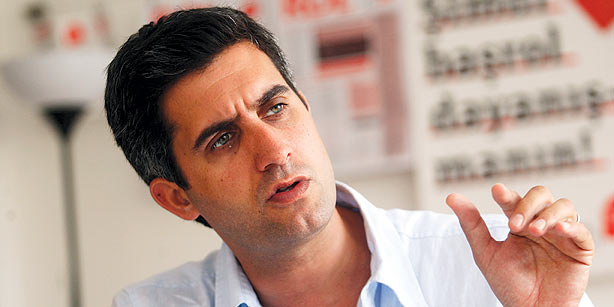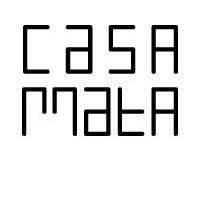Turkish artists supportive of Gezi Park protests targets of provocations
(The article below is quoted from Today's Zaman, June 13, 2013)
Numerous Turkish artists who have supported protests against the government's plans to demolish Taksim's Gezi Park have been targets of false allegations and provocations from news organizations, social media and leading political figures.

Actor Memet Ali Alabora has been receiving threats from unknown sources for some time. In a letter distributed Tuesday, Actress Betül Arım, Alabora's mother, expressed her distress over her son's treatment.
On May 30, Alabora tweeted, “Dude, the issue is not only about Gezi Park, have not you understood yet? Come on.” In a June 10 press conference in İstanbul, Alabora said he was referring to police's violent attitude toward the demonstrators and people's inability to express themselves and their wishes, adding that he started to receive threats following the tweet on May 30.
In her letter, titled “Neden?” (Why?), Arım asked why people were pepper sprayed for wanting to save trees, saying that she had gone to Gezi Park to protect the trees and protest violence and suppression. “In the meantime, I did not believe [when] I heard that my son had been receiving threatening messages and again I asked [myself], why? For me, as a person who has love inside herself, the whole world is a family. These incidents mean some members of this family have not grown up with love. … I said, ‘We love the created for the Creator's sake.' I felt anxious, but I did not fear [anything], everything will be understood in time,” the actress continued.
Arım also addressed a news story covering a play directed and written by her son. The story, which Yeni Şafak daily ran June 10 on Page 1 under the headline “Bu ne tesadüf” (What a coincidence it is), claimed that in rehearsals for Alabora's play “Mi Minör,” the actor taught people how to protest and encouraged them to rebel against the ruling Justice and Development Party (AK Party) through social media. The piece also claimed the play is being supported by an American “digital agency,” referring to Turkey-based company that promoted the play on social media. Alabora said the owner and shareholders of the company are all Turkish.
‘Mi Minör' nothing but fantasy
Alabora has told reporters that “Mi Minör” tells the story of a dystopian country called “Pinama,” adding that the play was performed 23 times in three different İstanbul venues, always with official consent. She went on to call the story's accusations unbelievable and spurious.
“I read [the news], could not understand [or] believe. I said, ‘That is going too far.' But it happened, the piece was in front of me and my son was the target.” Arım said she was deeply sad over the news story and that the editor of the piece should have tried to empathize with Alabora and understand his real intent.
“The person who wrote the [news] story is female, but I am sure she is not a mother. If she were a mother, she would not have written such a story, which I could not believe in a dream. … It seems she wanted to throw enough dirt at the wall that some would stick, without knowing about Memet Ali. … If she had asked all the people who know him [about him], she would have understood that he will be cleared of these claims,” Arım wrote.
Arım went on to write about Prime Minister Recep Tayyip Erdoğan's comments on Alabora's tweet. Without directly mentioning the actor's name, Erdoğan, who has organized pro-government “Milli İradeye Saygı” (Respect the National Will) rallies, said last week the AK Party was going to settle the score.
“One of my friends called and said ‘the prime minister has accused your son.' I said, ‘You must have misunderstood, is it possible? Does the prime minister of a country blame an artist, a young person, without ever meeting and learning about him? He is also a son of a mother. He will think of his mother first,” Arım said.
“I feel relaxed about each of these issues because I know my son. … How will people, who blamed my son, explain the issue to God, themselves, society and world? Is that not a big sin? I only want to ask everybody how a young tree grows. You do not need to be a mother to understand how a young tree grows, you can see that. However, only mothers know the sorrow and cries of a mother whose son's life is in danger. My heart hurts,” Arım's letter concluded.
Lists negatively affect artists' public image
Memet Ali Alabora is not the only artist to suffer after the Gezi Park protests, it seems. In a column titled “‘Black list' hazır” (The ‘black list' is ready) published on June 12, Journalist Cengiz Semercioğlu, who writes for Hürriyet daily's Kelebek supplement, claimed that artists who attended the Gezi Park protests and supported the demonstrations will be banned from performing concerts in festivals and staging plays in municipalities controlled by the AK Party.
On June 9 in Ankara, Erdoğan said some groups of protestors had received whatever they wanted in the 10 years of AK Party rule, adding that things would be different in the future. Semercioğlu interpreted these comments as a veiled reference to blacklists being prepared for artists, who he predicts will have a tough summer season.
Another list targeting artists was shared on June 16 on a twitter account named “Wake Up Attack.” Actors, singers and TV series crews were on the list. Implying that the Gezi Park protests were an organized plot and not a spontaneous outburst of discontent, the list was released under the title “işte gezi parkı tiyatrosunun ‘değerli oyuncuları'” (here the ‘valuable actors' of Gezi Park theater). Among the 112 artists on the list are Halit Ergenç, Memet Ali Alabora, Bergüzar Korel, Okan Bayülgen, Levent Üzümcü and Sertab Erener. Continuing the theatrical metaphor, under the list the post says the figures named are part of a “play” performed in an attempt to push Turkey into chaos and are not role models for society.








